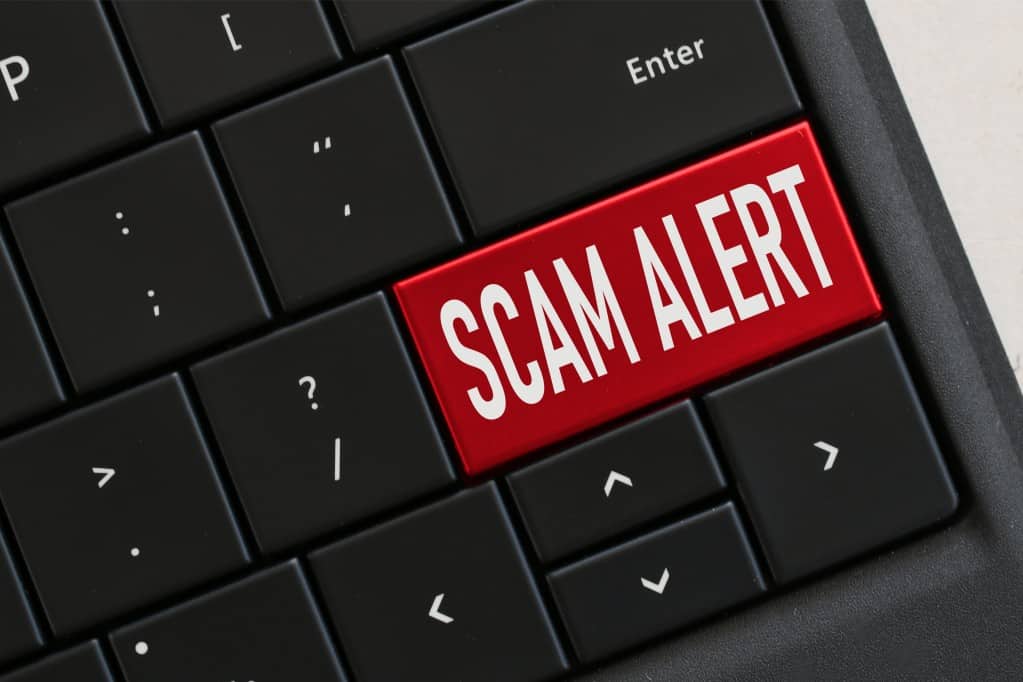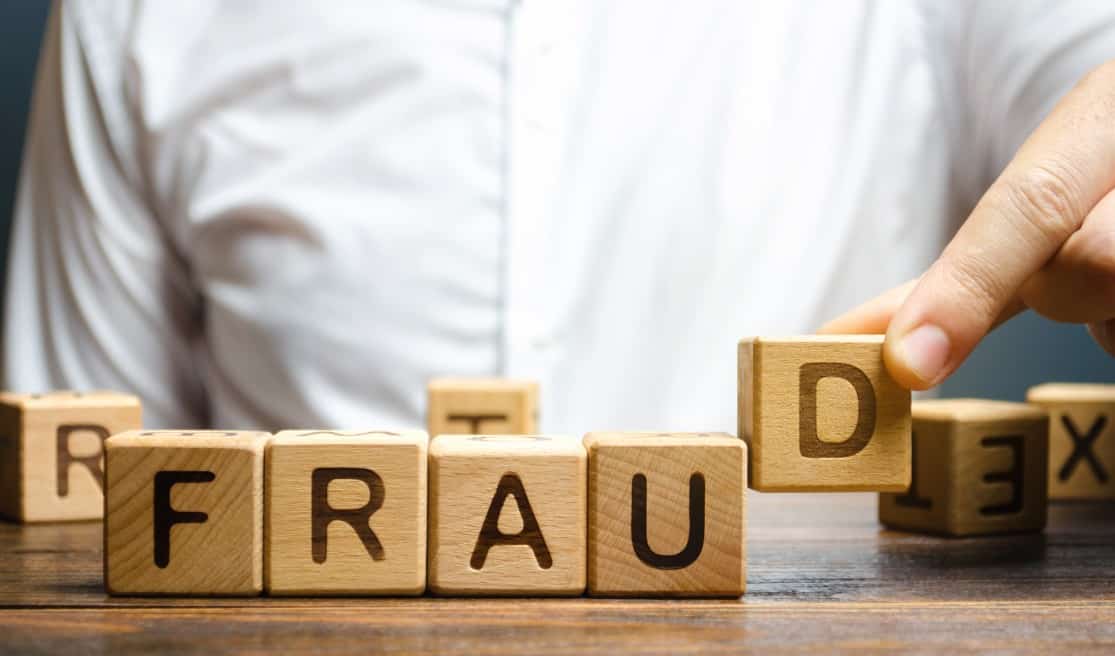Nowadays, with rapidly improving technology and lightning-fast communication, it has become very easy for people to fall prey to a vast array of scams and other malpractices, whether by dubious individuals or companies. It is indispensable to know to spot and report any potential scams before they cost you dearly, whether financially or in compromising your most private personal information.
Report Email Scams/Phishing
What are Email Scams/Phishing?
Scammers often utilize email to con you into revealing your private information to them. This is also known as phishing. They might attempt to appropriate your private personal information such as Social Security numbers, passwords, or account numbers. Should they obtain any of the aforementioned details, they will be able to access your bank account or any other accounts in your name or even access your email, which may contain more of your important personal data. Thousands of email scams are launched by con artists every day. What’s more, is that these scams are often successful. According to the Internet Crime Complaint Centre of the FBI, $57 million was lost to phishing scams in one year.
Scammers will regularly update and improve on their methods, however, you can spot a scam by looking out for a few telltale signs.
Related:
Scam emails will often look like they are from reputed companies that are known and trusted by people. It may look as if they were sent by a bank, an online payment site or app, a credit card company, social networking site, or an online store. Such emails often contain fake stories or notices to con you into downloading an attachment or opening a link. They will also often have the following characteristics:
- The sender may claim they have detected dubious login attempts or other suspicious activity.
- You may be informed about some inconsistency in your payment information or some issue with your account.
- They may say they need to confirm some of your personal information.
- Scammers will often include a fraudulent invoice.
- You may be asked to make a payment by clicking on a link.
- The caller may say you are eligible to avail of a government fund that requires your details for registration.
- You might be offered coupons for free gifts.
Steps to Take if You Suspect an Email Scam
Should you receive an email asking you to open an attachment or click a link, ask yourself whether you know the person who has contacted you or if you have an account with the company in question. If you have received the correspondence from an unfamiliar source you are most likely the target of a phishing scam. You can use the steps mentioned before to make sure it is indeed a scam and delete and report the email if this is the case.
If you suspect any of your data like your social security number, bank account, or credit card number may be in the hands of scammers, visit IdentityTheft.gov. You will find on this site, specific steps based on what information might have been compromised.
If you happen to download malicious software by clicking on suspicious links or downloading any dubious attachments, then run a scan after making sure your security software is up to date.
How to Report an Email/Phishing Scam
With such multiple varieties of fraud and scams, it can be very difficult to decide the appropriate place to report each type. The first step is to prepare to make a report by gathering all the necessary information like phone numbers, emails, and receipts and utilizing this information to decide where to make a report.
Start by approaching your local government departments like state consumer protection offices. In case you happen to lose money or other valuables in a scam, go ahead file a report with your local police as well.
You can also make reports with various federal government agencies. Government agencies utilize such reports to monitor scam patterns. They may also initiate legal action against the perpetrators based on such reports.
The Federal Trade Commission is one such agency you can approach regarding email scams, using the following steps:
- Forward it to [email protected]. You can forward scams via text message to SPAM (7726).
- Report email scams to the FTC at ReportFraud.ftc.gov.
Premium Rate Scam
What are Premium Rate Scams?
Premium rate numbers are those that cost more per minute for anyone to place a call to. This allows enterprises to be funded by incoming calls since part of the extra money charged goes to them. The advent of internet calls has made it easier for fraudsters to use these numbers to make an illicit profit.
Telecommunications companies need to deal with a complex array of protocols and extra layers, like voice mail services, SIM card-based customers, VoIP traffic, softphones (i.e. PC applications that perform the functions of a phone so an actual phone is not needed), faxing, etc. Monitoring all the aforementioned correspondences along with regular calls has been extremely difficult for telecom operators.
This has made it very conducive for unscrupulous elements to operate freely, without the prospects of serious consequences, redirecting a large portion of telecom traffic to premium numbers using various methods.
These methods are extremely diverse, and may include:
- Malware capable of making phone calls without the knowledge of the subscriber is installed on mobile phones and PCs.
- Automated calls from hijacked or stolen sim cards.
- Hacking networks of companies and taking control of their PBX (phone servers) when employees are not in, to dial premium numbers.
- Scammers also often make miscalls to unsuspecting people from premium numbers hoping they will call back and automatically be charged. This is known as callback spam.
- Many have also fallen victim to the “One Ring” scam, in which they receive calls in which their phone rings with a singular dial tone instead of double. This is an indication that the call is from somewhere within the US. However, when you try to call back, you are connected to a number outside the US. This is because scammers often employ spoofing techniques when making calls.
Steps to Take if You Suspect a Premium Rate Scam
The easiest way to avoid such a scam is to avoid returning calls made from numbers you know to be premium numbers. Premium numbers typically have special prefix numbers, which commonly include numbers like 300, 700, 701, etc.
Make sure the number on your caller ID is local. You can do this by checking the area code of the number on your caller ID is local and not from overseas. In case you do not make international calls, you can request your phone company or service provider to block this service for you. Always exercise caution even if the number seems genuine.
How to Report a Premium Rate Scam
If you suspect you might have been a target of this sort of scam, you can make a report with either the FCC or FTC.
Scam Adverts
What are Scam Adverts?
When advertisements are broadcast to consumers, federal law dictates that the ad must not be misleading and should even be backed by scientific evidence in certain cases. These “truth in advertising” laws are enforced by the FTC. The same standards apply, irrespective of where adverts may appear whether television, the internet, newspapers, or periodicals, in the mail, buses, or billboards.
Any claims in ads about claims about the health of consumers or even their pocketbooks are subject to these laws. This includes ads for dietary supplements, over-the-counter medications, food, alcohol, and tobacco.
Federal laws also prohibit or impose limits on indecent, profane, or obscene language. Broadcast of any obscene material is not allowed at any time, while profane or indecent broadcasts are prohibited at certain hours.
Steps to Take if You Suspect Scam Adverts
Broadcasters are liable for any material being broadcast on their stations including advertisements. The Federal Communications Commission considers broadcasters to be accountable to the community they cater to and expects them to take reasonable steps to make sure that any advertisements airing on their stations are not misleading or false.
The Federal Trade Commission has the main responsibility for deciding whether certain advertisements are misleading or false, and for taking stringent measures against all who sponsor such material. You can file a complaint online with the FTC, or you may get in touch with them on their toll-free number 1-877-FTC-HELP (1-877-382-4357).
How to Report Scam Adverts
Aside from the FTC, you can also report any fraudulent adverts on media such as YouTube or Facebook to those respective companies.
To report a Facebook Ad, that you believe to be fraudulent, or in violation of Facebook’s advertising policies, just take the following steps:
- Scroll to the ad you wish to report, and click the three dots on the top right corner.
- Click on the “report ad” option and follow the instructions given on-screen.
To report an ad on Youtube or any other Google platform, first, make sure the ad in question is indeed a google ad. Some different kinds of Google ads you might come across include:
- You will see Ads during a Google search. You will see these ads on the Google Search results page. These ads can also be seen on other Google services like Google shopping.
- Google Ads also appear on non-Google websites and apps. These can easily be identified as Google ads if they carry an Ads choice icon, along with an “X” icon that allows viewers to block the ad.
- YouTube Ads: You will see these ads at the bottom portion of YouTube videos, or they may appear on the right side of the videos.
Upon confirming that it is a Google ad, the next step is to report it. You can do this by completing and submitting the “report an ad” form on Google’s troubleshooting page. After submitting the form, you’ll receive a confirmation via email.
Fraudulent Companies
How does one report scam businesses in this day and age when it is not uncommon for some questionable enterprises to rub consumers in the wrong way. They engage in many unethical business practices and may even fail to deliver what they promise to clients. It is very important to report such fraudulent businesses in order to prevent them from conning more people. If you do happen to face any issues that were caused by such businesses, the first step would be to attempt a resolution with its manager or proprietor. Should this fail, there are several other ways to deal with such fraudulent enterprises.
Steps to Take if You Suspect Fraudulent Business
Be sure to maintain records of all purchases and orders and be sure to regularly check them. This will help you spot dubious invoices and any other signs of possible fraud. Do not make any payments on these purchases and invoices until you have duly received the product or service you have paid for. It is best to research any potential supplier or vendor before engaging in any transaction with them.
How to Report a Fraudulent Business
There are several avenues for recourse if you suspect you may have had dealings or are currently dealing with fraudulent businesses:
- You can report dubious companies to credit agencies such as Equifax Business, Experian Business, Bad Credit USA, etc.
- Post online reviews regarding the experience you have had with the scam business. This way you can be sure the news reaches as many people as possible and they will, in turn, avoid the company in question.
- File a report with the Better Business Bureau. You can easily make a complaint on their website.
- Another way is to report fraudulent businesses to consumer advocacy groups. Such groups are able to escalate disputes much faster than individual consumers.
- You can also report them to the FTC. The more information you can provide, the better the chances of swift action being taken. Be sure to provide the full and correct name of the business, as well as contact details like email, phone number etc. It would also be good if you can identify the person who contacted you.





























![Best Amazon Review Checkers in [year] 22 Best Amazon Review Checkers in 2026](https://www.gadgetreview.dev/wp-content/uploads/best-amazon-review-checker-image.jpg)
![Best Renters Insurances in [year] 23 Best Renters Insurances in 2026](https://www.gadgetreview.dev/wp-content/uploads/best-renters-insurance-image.jpg)
![Best Computer Repair Kits in [year] 24 Best Computer Repair Kits in 2026](https://www.gadgetreview.dev/wp-content/uploads/best-computer-repair-kit-image.jpg)
![Best Smartphone Repair Kits in [year] 25 Best Smartphone Repair Kits in 2026](https://www.gadgetreview.dev/wp-content/uploads/best-smartphone-repair-kit-image.jpg)
![Best iPhone Repair Kits in [year] 26 Best iPhone Repair Kits in 2026](https://www.gadgetreview.dev/wp-content/uploads/best-iphone-repair-kit-image.jpg)
![Best Windshield Repair Kits in [year] 27 Best Windshield Repair Kits in 2026](https://www.gadgetreview.dev/wp-content/uploads/best-windshield-repair-kit-image.jpg)
![Best Dent Repair Kits in [year] 28 Best Dent Repair Kits in 2026](https://www.gadgetreview.dev/wp-content/uploads/best-dent-repair-kit.jpg)